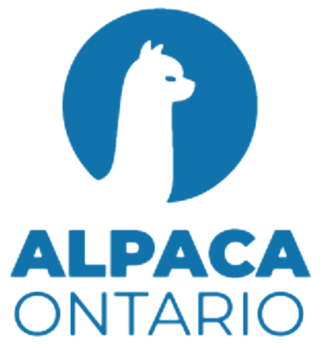Why Alpaca’s?
Alpacas are primarily raised for their luxurious and soft fiber, which is prized for its warmth, lightweight feel, and hypoallergenic properties. It’s often compared to cashmere for its softness and to wool for its warmth, but alpaca fiber lacks the lanolin found in sheep’s wool, making it ideal for people with sensitive skin. The fiber comes in a variety of natural colors, from white to various shades of brown, gray, and black, making it versatile for textile production.
Here are some valuable links to learn more;
VALUE CHAIN
HARVEST CODE OF PRACTICE – BEST PRACTICES
AO FIBRE WEBINAR
Alpaca Fibre: Basic Farm Sorting – Part 1
Pre-requisite to Alpaca Fibre: Classer Certification – Part 2
The success of the alpaca fibre industry relies on quality fibre preparation at shearing time. Fibre preparation is as essential to adding value to your product as is the shearing. Participants will develop a good understanding of the basic principles of proper skirting and sorting techniques, as well as a basic understanding of grading and processing essentials. This information will help guide the alpaca farmers as they value-add to their raw fibre for better profitability.
Part 1: Basic Farm Sorting
Certification: Participants will receive a certificate of participation issued by Alpaca Ontario. This is simply a certificate stating that the holder has participated in the two-day workshop. The Custom Farm Sorter Certificate is available as an option* for candidates selecting to have their skills evaluated. To obtain this certificate, participants will submit 5 skirted fleeces for evaluation by a qualified classer. The two-day Basic Farm Sorting course is a pre-requisite for participation in the Classer Certification course.
This program has been developed by the Fibre Initiative Committee of Alpaca Ontario, in cooperation with Haliburton School of the Arts, with the assistance and under the supervision of Cathy Merkley, Certified Classer and AOBA Judge and in consultation with Cameron Holt of Australia, world renowned fibre expert.
Instructor – Denise Martel
*** Printed materials will be provided in a binder – also for use during the Sorter session and the Classer course, for a maximum fee of $25.00 –to be paid to the instructor. ***
Register with Alpaca Ontario!
Part 2: Alpaca Fibre, Classer
Participants must have completed Alpaca Fibre: Basic Farm Sorting – Part 1
A classer certification course is available for those participants wishing to pursue their skill development. The course consists of a four-day in-depth program, including review of sorting practices, classing skill development, properties of alpaca fibre, appropriate blends, best end uses, batching fleeces for most profitable gains, and much more. Candidates may wish to improve their skills by participating in the four-day course which culminates in a written evaluation. In addition, candidates may opt to complete the Practicum for full Classer Certification.
Classer Certification Practicum (optional*): For Classer Certification, candidates will sort and class a minimum 200 huacaya fleeces and 5 suri fleeces over the course of 2 years. Evaluations: 1) written exam at the end of the four-day course; 2) the candidate will submit 25 samples, 20 huacaya and 5 suri, evaluated for prescribed characteristics; 3) the candidate will participate in 40 hours of classing under the supervision of a qualified classer mentor.
*Optional evaluations and practicums are subject to an additional fee paid to Alpaca Ontario.
This programme has been developed by the Fibre Initiative Committee of Alpaca Ontario, with the assistance and under the supervision of Cathy Merkley, Certified Classer, AOA and IAJS Judge and in consultation with Cameron Holt of Australia, world renowned fibre expert.
